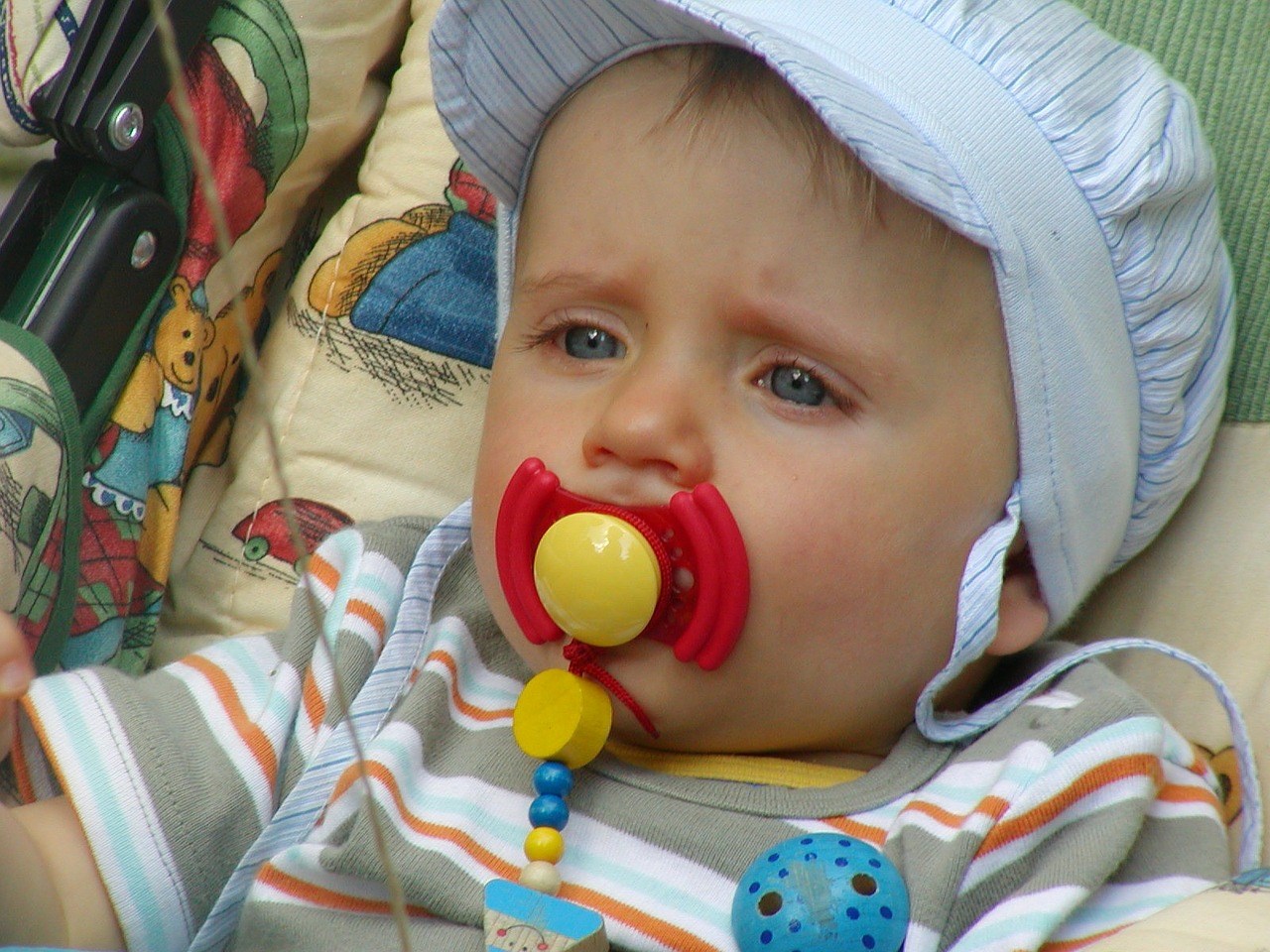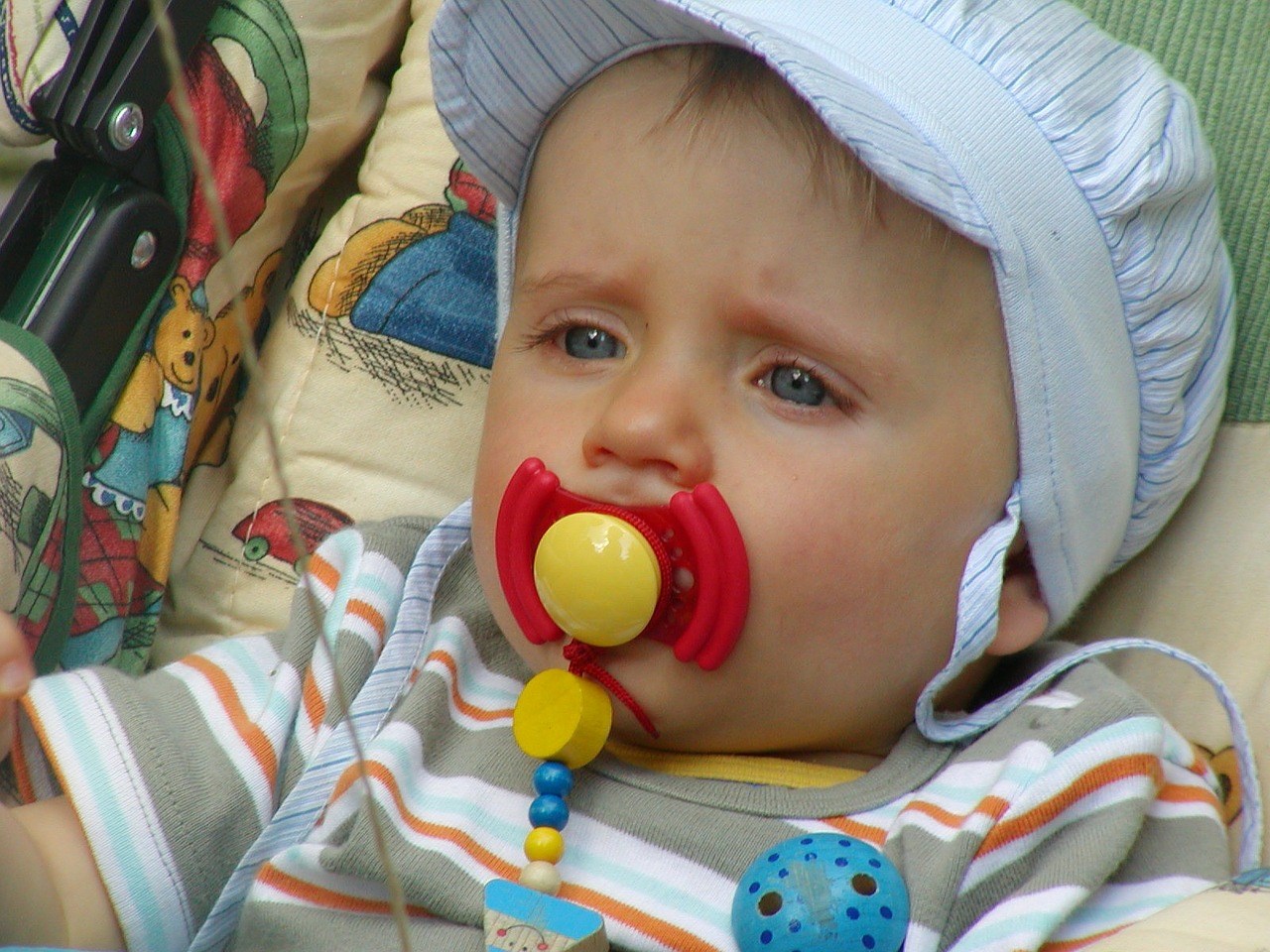We’ve all experienced the discomfort of teething. That is why we want to do our best to make the experience bearable for our child. But before you think about the tooth fairy’s backstory, what are

We’ve all experienced the discomfort of teething. That is why we want to do our best to make the experience bearable for our child. But before you think about the tooth fairy’s backstory, what are the things that you should expect in this milestone? Moreover, what are the signs that your little one is really starting to grow his/her first set of chompers? And which ones should we not see?
 Besides the signs, parents are always sharing stories on how to make teething more comfortable. According to this guide, amber necklaces can provide pain relief. Other remedies include using ice. So when should we get the amber necklaces and ice cubes ready?
Besides the signs, parents are always sharing stories on how to make teething more comfortable. According to this guide, amber necklaces can provide pain relief. Other remedies include using ice. So when should we get the amber necklaces and ice cubes ready?
When Do Kids Normally Grow Their Teeth
You can start anticipating this event by the time your child is around four to seven months of age. And the whole process can last from six months to twenty-four months of age.
In What Order Does Primary Teeth Erupt?
The first teeth you’ll see are the top or bottom central incisors. At around nine months of age, the lateral incisors start showing up, followed by the canine teeth. Then, at thirteen months of age, the first molars will erupt. The second molars are the last teeth to grow, usually from twenty-two to twenty-four months.
Common Signs That Your Kid Starts Teething
Expect drooling during around two to three months of age. It is probably the best signal that your child is teething because teething stimulates saliva. You might find your little one’s shirt and bib to be soggy, with occasional gagging and coughing. However, make sure that always wipe your baby’s saliva away to prevent chapping. If not prevented, rashes and skin chafing might start showing at your baby’s mouth, chin, and neck. Another thing that you can do is to put on some baby-friendly cream or ointment to serve as a barrier from the drool. Whether it’s your hands or their hands, another common sign of teething is when your baby constantly wants to bite anything that they find. The pressure from chewing and biting relieves him/her from the pain caused by the growing teeth. As we have said, teething causes a lot of discomfort. Although some babies are fussier than others, you might notice that your little one cries more easily and is generally irritable. Imagine being hungry and having sore gums. We can’t blame if our baby is being frustrated during meal times. The sucking action contributes to the discomfort, and feeling hungry is not helping either. Sadly, tooth eruption does not have a curfew. Your child might have trouble sleeping during bedtime because of the pain. You can also notice that your baby is tugging furiously at his/ her ear or rubbing on his/her cheek/chin profusely. The reason for this is that the pain can travel to these parts because they share the same nerve pathways. What Signs You Shouldn’t Expect
Symptoms related to flu, diarrhea, and other viral illnesses are not associated to teething. You might have heard of babies having fever as a sign of tooth eruption, but these illnesses might just happen to occur at the same time with teething. If these symptoms occur, it is best that you consult a doctor immediately. Even if their first teeth are not permanent yet, you can introduce good dental habits early. Start with cleaning your child’s teeth with plain water and a small-headed toothbrush with soft bristles twice daily. You can do this up to 18 months of age and then start with a low-fluoride toothpaste. There are toothpaste flavors that kids love and just remember to teach your little one how to spit it out afterward. Lastly, always be patient and supportive with your child. He/she will probably need help with brushing his/her teeth until around eight years old.
Drooling
Chewing on Hands or Toys
Grumpy Mood
Refusing to Eat
Change in Sleeping Schedule
Ear Tugging and Cheek/Chin Rubbing
How to Take Care of Your Baby’s Teeth
